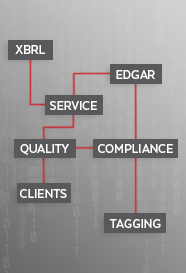H.R. 4164, the Small Company Disclosure Simplification Act, is deeply flawed. The incorrect facts used to justify this bill are relatively insignificant compared to the bill’s inevitable and destructive consequences.
If this poorly considered bill manages to gain passage—either on its own or as an amendment to a larger bill—the partial elimination of the XBRL filing requirement would be deeply damaging to the national standards of public disclosure and financial reporting. Additionally, the SEC’s ability to discover investor fraud would be unnecessarily and dramatically hamstrung by this bill. Lastly, and rather ironically even by congressional standards, this bill will be considerably detrimental to the same companies that it is meant to help.
H.R. 4164 has been introduced by Rep. Robert Hurt of Virginia’s 5th district and co-sponsored by Rep. Terri Sewell of Alabama’s 7th district with the stated intent of reducing the compliance burden on smaller companies by eliminating their XBRL disclosure requirement. It is true that the bill would save some publically traded companies between eight and fifteen thousand dollars per year, but H.R. 4164 would have profound and pernicious impacts that far outweigh these dubious benefits.
Hurting Small Companies by Creating a Financial Reporting Caste System
The reduction in XBRL regulations proposed in H.R. 4164 would actually hurt the smaller companies it is designed to help. If this bill becomes law, and if XBRL becomes the standard for financial reporting only for large companies, smaller companies will be overlooked by financial analysts and institutional investors. Analysts and major investors will not have the tools necessary to discover opportunities among the smaller companies that are exempted from XBRL reporting. In the wake of H.R. 4164, future investment dollars will stream only to companies whose financial information can be clearly and transparently reviewed in the XBRL format. Exempting small companies from XBRL reporting will create a permanent underclass of less visible, and undiscoverable investment opportunities.
Putting Investors at Risk
The value of XBRL data goes beyond stock analysis. XBRL represents a significant improvement in the SEC’s ability to identify and eliminate investor and financial fraud by companies of all sizes. H.R. 4164 represents a massive regulatory loophole that a fraudulent company could drive an Enron-sized truck through.
Misrepresenting the Value of XBRL Data
Rep. Hurt’s press release of March 6, 2014 regarding this bill rehashes the specious claim that “evidence suggests that less than ten percent of investors actually use XBRL.” XBRL is not designed for the individual investor, but it is and will be of tremendous value to institutional investors and analysts and the companies they choose to invest in.
News Flash: The Stone Age is Over
XBRL is the future of financial reporting, and delaying its use will set the world of financial reporting and oversight back to a technology (HTML) that was developed in 1996. XBRL is a tremendous and necessary advancement, and instead of pushing a reversion to decades old standards, the government should be demanding higher quality, more transparent data.
Overstating the Regulatory Burden of XBRL
Rep. Hurt’s press release of March 6, 2014 includes the assertion that XBRL filing costs public companies “tens of thousands of dollars” annually. That may be true for those companies getting horrendously overcharged by their current provider, but not for those companies working with RDG Filings. RDG is among the leading XBRL service providers, and despite the fact that we provide the highest level of service and data quality available, our clients have annual costs significantly lower than the exaggerated costs put forward by Rep. Hurt.
An independent survey conducted by Financial Executives Research Foundation (FERF) indicated that the median cost for the most recent 10-K filing was $2,000 for smaller reporting companies. An XBRL exemption for smaller issuers would mean an annual savings of only $8,000. To be honest, the cost of XBRL reporting can vary depending on the complexity of the financials, but even at the highest end, the “burden” of XBRL reporting is not significant enough that the savings would outweigh the benefits of XBRL for both companies and shareholders.
Distorting of the Impacts of XBRL
Rep. Hurt’s press release of March 6, 2014 states that the XBRL requirement has “a negative effect on small companies, particularly innovative startups that need additional capital to expand their operations and grow.” The preponderance of recent data belies this claim. The IPO market is thriving again, even as XBRL is a known regulation these IPOs must accept. XBRL has had no evident impact on the currently robust IPO market.
The Obvious Conclusions
The long-in-short of the unintended consequences of this bill is simple: H.R. 4164 would kill hundreds of high-quality American jobs, create a divisive caste system of public companies, increase the risk of investor fraud, and hamstring smaller companies’ ability to earn future investment dollars. These sacrifices will be made in exchange for an annual savings of eight to fifteen thousand dollars for public companies.
H.R. 4164 is a bad bill, and it should not become a bad law.



